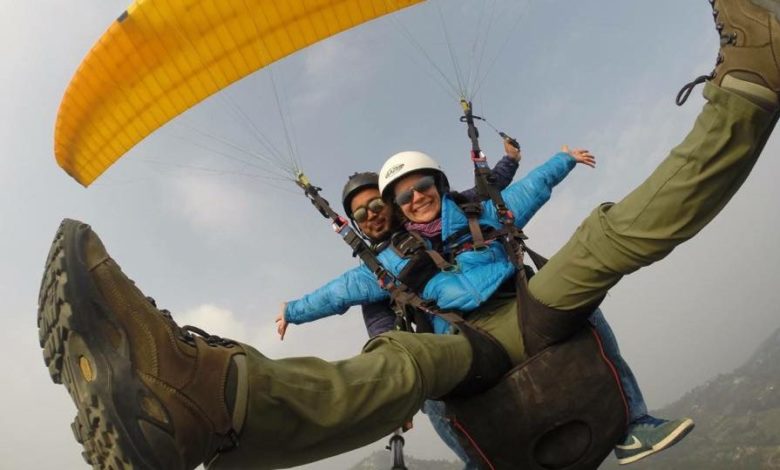
Seconds before I jumped off a cliff in Kathmandu, Nepal, my paragliding instructor told me, “When I say ‘run’, you need to run. Do not sit down.”
There was a lot on my mind at the time: the anticipation of my first paragliding experience, the realization of how ridiculously high we were. I started to wonder if I was ready to do this.
As I stood, marveling at the panoramic cliff-side view, I thought about the instructor’s odd directions. Who would sit when someone told you to run, especially on the edge of a precipice?
After a moment, I realized some people must have panicked before taking the final leap. They liked the idea of paragliding but couldn’t commit at the critical moment.
I was nervous, but if we were going off a cliff, I wanted to do everything I could to help ensure a successful landing. Thinking fast, I shouted to my travel buddy, Farhad, “Hey, take a picture of this!”
After that, I was committed. I couldn’t allow physical evidence to exist showing that I had to be dragged off a cliff sitting down. I put myself in a position where the only path was forward. When the time came, I ran hard and jumped far.
That day, I learned the importance of committing to the decision I made, even in the presence of palpable, cliff-induced fear.
This lesson has served me particularly well as an entrepreneur. There are so many unknowns in the business world. For someone who is logic-oriented, it’s easy to get lost in the data. I always want to do more and more research before I implement anything. Engineers have a tendency to fall into the trap of “paralysis by analysis.” But if we allow ourselves to fall down the rabbit hole of wanting to find the absolute best solution and become lost in the plethora of options, we’ll never reach a decision. Nothing will happen.
It’s at this point that we arrive at the pressing question: how can you commit yourself to the decision you’ve made?
- Be comfortable with your decision – you’ve done the research, and you’ve weighed the risks. Within reason, you’ve found the best option. If you’re not convinced that the decision is a good one, the result will probably be half-hearted and sloppy.
- Tell others about your decision or goal – accountability is a powerful motivator.
- Create consequences for not following through – in my example, there would have been an embarrassing photograph of me chickening out. Try to find a consequence related to the circumstances that you want to avoid.
If new, relevant information comes to light, reevaluate your decision and figure out if adjustments need to be made. But if you’re confident with your decision, take the advice of Shia LeBeouf and just do it.
Jacquelyn Adams, an IEEE Senior member, is a nationally-recognized leader in employee learning and development. Jacquelyn is the CEO and Founder of Ristole, a consulting business that transforms corporations through engaging employee training. Find more of her Lessons on Leadership columns here or connect with her on LinkedIn here.






